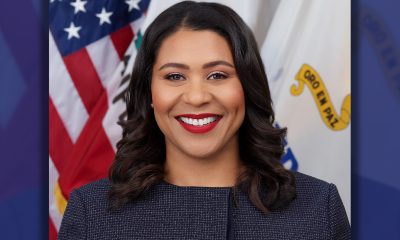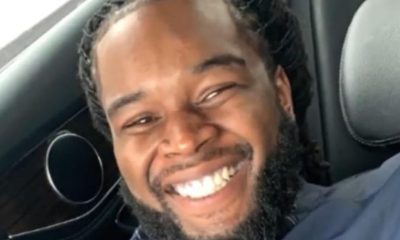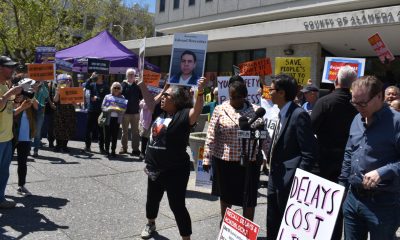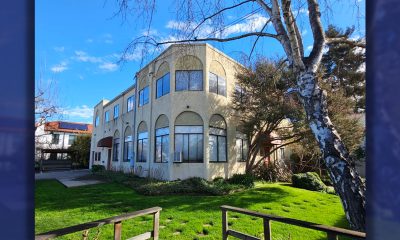Commentary
COMMENTARY: The Sale of Singles Cigarettes is a Problem You Need to Know About
MILWAUKEE COURIER — The sale of single cigarettes is illegal and a practice that is detrimental to the health of residents in Central City Milwaukee communities. That’s a message the Wisconsin African American Tobacco Prevention Network’s (WAATPN) Single Cigarette Subcommittee and tobacco retailers have been working to spread in Milwaukee.
By Debra Nevels, Senior Manager of Health Systems at American Cancer Society and Baker Al-Qudsi, Vice President of Marketing at Hayat Pharmacy
There is not enough awareness in our community on the issue of the sale of single cigarettes, commonly referred to as “singles” or “loosies.” The need for increased awareness on the issue became more evident after the incident that occurred on April 29, at ABC Liquor Depot. Detailed in a Fox 6 news segment, the incident began after a clerk refused to sell a single-cigarette.
The sale of single cigarettes is illegal and a practice that is detrimental to the health of residents in Central City Milwaukee communities. That’s a message the Wisconsin African American Tobacco Prevention Network’s (WAATPN) Single Cigarette Subcommittee and tobacco retailers have been working to spread in Milwaukee. The WAATPN began researching the issue in 2016. By surveying more than 600 residents, they found that a quarter of those polled did not know it was illegal to sell single cigarettes, while 75% thought it was a problem in Milwaukee. Nearly half of respondents believed it was the responsibility of the community, law enforcement, retailers and elected officials to help prevent the sale of single cigarettes.
This issue was also highlighted recently in an op-ed penned by Senator Lena Taylor titled, ”Loosies are killing us,” in which she discussed the informal economy around the sale of single cigarettes that were created as the prices of cigarette packs steadily rose.
Taylor and the WAATPN and others consider the sale of “loosies” problematic for several reasons. It is a predatory practice that makes cigarettes more accessible to individuals trying to quit and to low income residents, who are actually paying a premium by purchasing a single for 50 cents or $1. The sale of singles also increases youth access to cigarettes because vendors who do choose to sell singles are more likely to shirk laws aimed at preventing youth tobacco use and because non-vendors sometimes sell loosies outside of stores. It also results in the loss of state and federal tax revenue that could be allocated to support tobacco prevention and education in Wisconsin.
Another problem, as evidenced by the incident at ABC Liquor, is that retailers are sometimes pressured by customers to sell loosies. This could be occurring because some individuals are accustomed to being able to buy them from other retailers. The WAATPN became familiar with this problem as a result of outreach efforts to retailers in Milwaukee. The result is a campaign to create “No Loosies,” signage that will be displayed in corner stores and gas stations throughout Milwaukee this summer. The signs will help make customers aware that the sale of single cigarettes is illegal, and that retailers who display the sign won’t do it. The signs should also help prevent incidents such as the one that occurred at ABC Liquor.
Aside from the immediate safety and law enforcement concerns, the greater risk related to the sale of single cigarettes are the health risks related to all tobacco use, especially mentholated tobacco, which is easier to start and harder to quit. For African-Americans, the top three causes of death are all tobacco related. In Wisconsin, 28% of African- Americans smoke, though in some Milwaukee ZIP code areas the rates are nearly 40%. The adult smoking rate in Wisconsin is 16%. Part of the reason for that disparity is the fact that single cigarettes are widely available in communities of color.
One of the many issues that need to be addressed to lower this disparity is the need for increased awareness on the issue of single cigarettes.
If you’d like to learn more about the Single Cigarette campaign, where to report those who sell single cigarettes or are looking to quit smoking or using tobacco please reach out to us on social media at https://www.facebook.com/waatpn/.
This article originally appeared in the Milwaukee Courier.
Commentary
Opinion: Lessons for Current Student Protesters From a San Francisco State Strike Veteran
How the nation’s first College of Ethnic studies came about, bringing together Latino, African American and Asian American disciplines may offer some clues as to how to ease the current turmoil on American college campuses over the Israel-Hamas war. After the deadline passed to end the Columbia University encampment by 2 p.m. Monday, student protesters blockaded and occupied Hamilton Hall in a symbolic move early Tuesday morning. Protesters did the same in 1968.
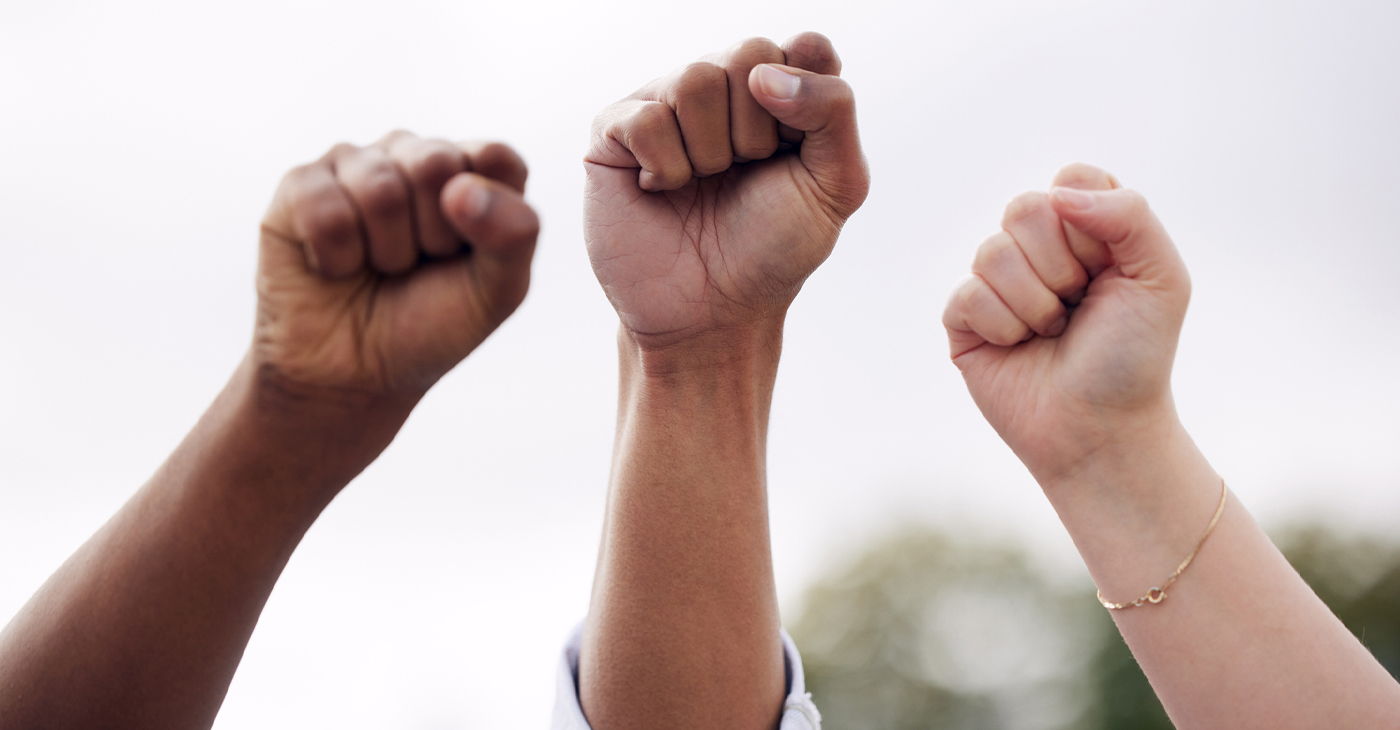
By Emil Guillermo
How the nation’s first College of Ethnic studies came about, bringing together Latino, African American and Asian American disciplines may offer some clues as to how to ease the current turmoil on American college campuses over the Israel-Hamas war.
After the deadline passed to end the Columbia University encampment by 2 p.m. Monday, student protesters blockaded and occupied Hamilton Hall in a symbolic move early Tuesday morning.
Protesters did the same in 1968.
That made me think of San Francisco State University, 1968.
The news was filled with call backs to practically every student protest in the past six decades as arrests mounted into hundreds on nearly two dozen campuses around the country.
In 1970, the protests at Kent State were over the Vietnam War. Ohio National Guardsmen came in, opened fire, and killed four students.
Less than two weeks later that year, civil rights activists outside a dormitory at Jackson State were confronted by armed police. Two African American students were killed, twelve injured.
But again, I didn’t hear anyone mention San Francisco State University, 1968.
That protest addressed all the issues of the day and more. The student strike at SFSU was against the Vietnam war.
That final goal was eventually achieved, but there was violence, sparked mostly by “outside agitators,” who were confronted by police.
“People used the term ‘off the pigs’ but it was more rally rhetoric than a call to action (to actually kill police),” said Daniel Phil Gonzales, who was one of the strikers in 1968.
Gonzales, known as the go-to resource among Filipino American scholars for decades, went on to teach at what was the positive outcome of the strike, San Francisco State University’s College of Ethnic Studies. It’s believed to be the first of its kind in the nation. Gonzales recently retired after more than 50 years as professor.
As for today’s protests, Gonzales is dismayed that the students have constantly dealt with charges of antisemitism.
“It stymies conversation and encourages further polarization and the possibility of violent confrontation,” he said. “You’re going to be labeled pro-Hamas or pro-terrorist.”
That’s happening now. But we forget we are dealing not with Hamas proxies. We are dealing with students.
Gonzales said that was a key lesson at SF State’s strike. The main coalition driving the strike was aided by self-policing from inside of the movement. “That’s very difficult to maintain. Once you start this kind of activity, you don’t know who’s going to join,” he said.
Gonzales believes that in the current situation, there is a patch of humanity, common ground, where one can be both pro-Palestine and pro-Israel. He said it’s made difficult if you stand against the belligerent policies of Benjamin Netanyahu. In that case, you’re likely to be labeled antisemitic.
Despite that, Gonzales is in solidarity with the protesters and the people of Gaza, generally. Not Hamas. And he sees how most of the young people protesting are in shock at what he called the “duration of the absolute inhumane kind of persecution and prosecution of the Palestinians carried out by the Israeli government.”
As a survivor of campus protest decades ago, Gonzales offered some advice to the student protesters of 2024.
“You have to have a definable goal, but right now the path to that goal is unclear,” he said.
About the Author
Emil Guillermo is a journalist and commentator. A veteran newsman in TV and print, he is a former host of NPR’s “All Things Considered.”
Activism
Oakland Post: Week of May 1 – 7, 2024
The printed Weekly Edition of the Oakland Post: Week of May 1 – 7, 2024

To enlarge your view of this issue, use the slider, magnifying glass icon or full page icon in the lower right corner of the browser window. ![]()
Activism
Oakland Post: Week of April 24 – 30, 2024
The printed Weekly Edition of the Oakland Post: Week of April 24 – 30, 2024

To enlarge your view of this issue, use the slider, magnifying glass icon or full page icon in the lower right corner of the browser window. ![]()
-

 Community3 weeks ago
Community3 weeks agoFinancial Assistance Bill for Descendants of Enslaved Persons to Help Them Purchase, Own, or Maintain a Home
-

 Business3 weeks ago
Business3 weeks agoV.P. Kamala Harris: Americans With Criminal Records Will Soon Be Eligible for SBA Loans
-

 City Government4 days ago
City Government4 days agoCourt Throws Out Law That Allowed Californians to Build Duplexes, Triplexes and RDUs on Their Properties
-

 Activism4 weeks ago
Activism4 weeks agoOakland Post: Week of April 10 – 16, 2024
-

 Activism2 weeks ago
Activism2 weeks agoOakland Post: Week of April 24 – 30, 2024
-

 Community3 weeks ago
Community3 weeks agoAG Bonta Says Oakland School Leaders Should Comply with State Laws to Avoid ‘Disparate Harm’ When Closing or Merging Schools
-

 Community3 weeks ago
Community3 weeks agoRichmond Nonprofit Helps Ex-Felons Get Back on Their Feet
-

 Community3 weeks ago
Community3 weeks agoOakland WNBA Player to be Inducted Into Hall of Fame

